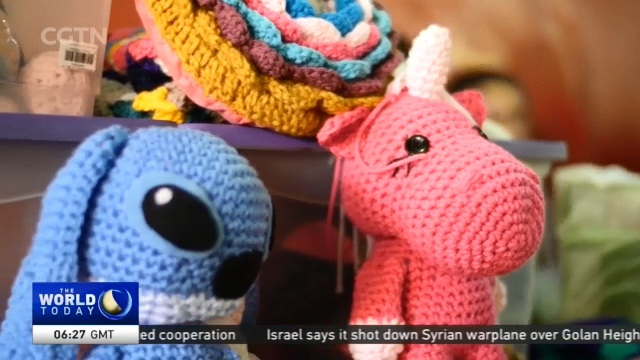
16:13, 25-Jul-2018
Give and Take: Struggling Argentines barter goods without cash
Updated
16:01, 28-Jul-2018
02:45

It might be hard to think about bartering goods without cash yet that is what's happening in Argentina. Inflation has given rise to numerous barter clubs, and more and more people are turning to that to get what they want. CGTN's Joel Richards has more.
Alongside dozens of other women, 30-year-old Gisela lays out orders of pizzas and pastas she made at home during the week. Rather than selling her food for money, Gisela will be swapping it for other goods at this barter club.
GISELA BARTER CLUB MEMBER "During the week, I publish on the Facebook page of this club - there are several clubs like this. I publish what I'm making and post the list of what I need at home. People make their orders, I write down who wants what, what flavors they want, and come with their orders."
With inflation expected to end the year at around 30 percent and rising unemployment, barter clubs like this are increasingly common in Argentina. This club in Merlo outside Buenos Aires has more than 40-thousand members on its Facebook page.
Members, comprised of mostly women, pay less than a dollar which goes toward covering its organizational costs at this sports club.
The value of products is set by the Facebook page. People agree to the trade and then come here to meet. The sound of the names of people who can't find their contacts fills the hole during the meeting.
JOEL RICHARDS MERLO, ARGENTINA "Barter clubs like these are not new in Argentina, They were common in the aftermath of the economic crisis in the early 2000s, but what we have been told here today is that increasingly people are returning to these clubs to get hold of basic goods."
In this working class neighborhood, families are coping with a struggling economy. Here some people simply want toys for their children, some need clothes, many need food. Twenty administrators run this club which started up two years ago. Silvia is one of them. She knits toys and with that she is able to help out at home.
Silvia remembers the 2001 economic crisis when barter clubs like this sprung up around the country. She's worried people today are again in need of a support network.
SILVIA ARANDA BARTER CLUB ORGANIZER "It is like a plan B. Sometimes you can advertise something you are selling, but nobody is buying. Here at least you can get hold of goods, it is like having an extra income to help at home. The husband goes to work and is paid, but we fill the cupboards."
For families here, this is a secondary source of income. The worry is that bartering becomes the only way people can make ends meet. Joel Richards, CGTN, Merlo outside Buenos Aires.

SITEMAP
Copyright © 2018 CGTN. Beijing ICP prepared NO.16065310-3
Copyright © 2018 CGTN. Beijing ICP prepared NO.16065310-3